Jay Yadawa
Practical Machine Learning Safety: A Survey and Primer
Jun 09, 2021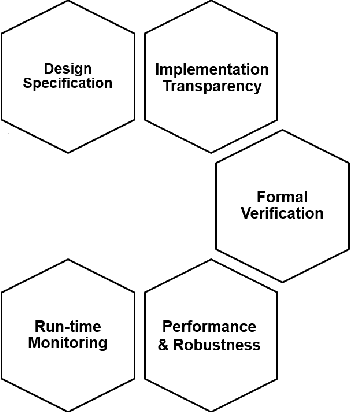
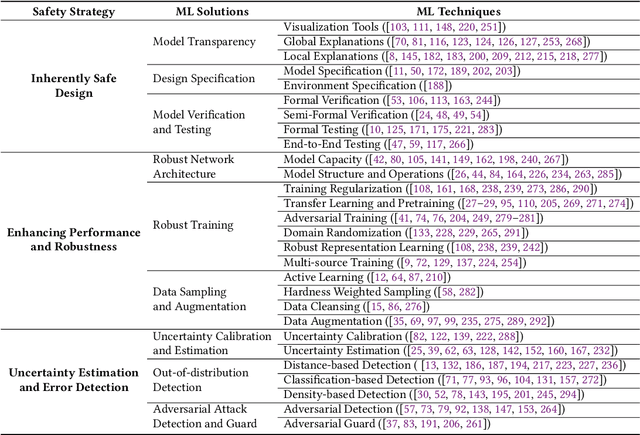
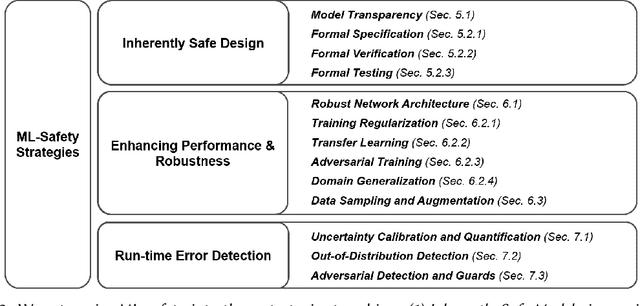
Abstract:The open-world deployment of Machine Learning (ML) algorithms in safety-critical applications such as autonomous vehicles needs to address a variety of ML vulnerabilities such as interpretability, verifiability, and performance limitations. Research explores different approaches to improve ML dependability by proposing new models and training techniques to reduce generalization error, achieve domain adaptation, and detect outlier examples and adversarial attacks. In this paper, we review and organize practical ML techniques that can improve the safety and dependability of ML algorithms and therefore ML-based software. Our organization maps state-of-the-art ML techniques to safety strategies in order to enhance the dependability of the ML algorithm from different aspects, and discuss research gaps as well as promising solutions.
Multi-task Transformation Learning for Robust Out-of-Distribution Detection
Jun 07, 2021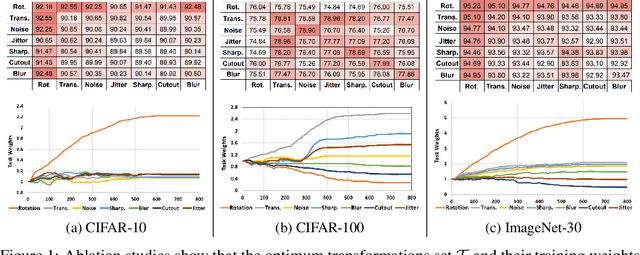
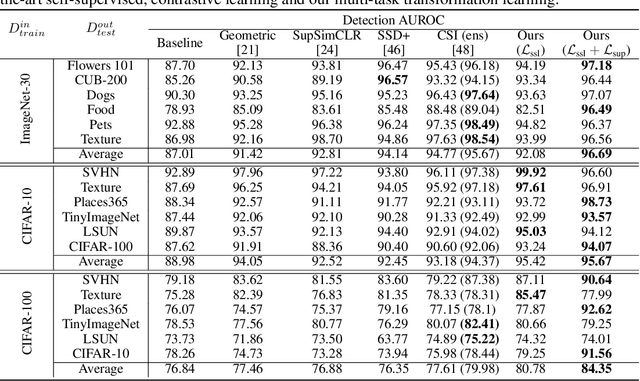
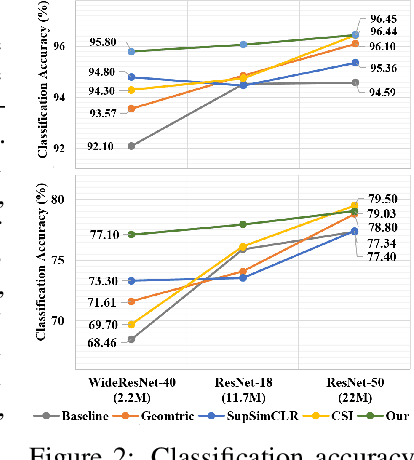

Abstract:Detecting out-of-distribution (OOD) samples plays a key role in open-world and safety-critical applications such as autonomous systems and healthcare. Self-supervised representation learning techniques (e.g., contrastive learning and pretext learning) are well suited for learning representation that can identify OOD samples. In this paper, we propose a simple framework that leverages multi-task transformation learning for training effective representation for OOD detection which outperforms state-of-the-art OOD detection performance and robustness on several image datasets. We empirically observe that the OOD performance depends on the choice of data transformations which itself depends on the in-domain training set. To address this problem, we propose a simple mechanism for selecting the transformations automatically and modulate their effect on representation learning without requiring any OOD training samples. We characterize the criteria for a desirable OOD detector for real-world applications and demonstrate the efficacy of our proposed technique against a diverse range of the state-of-the-art OOD detection techniques.
 Add to Chrome
Add to Chrome Add to Firefox
Add to Firefox Add to Edge
Add to Edge